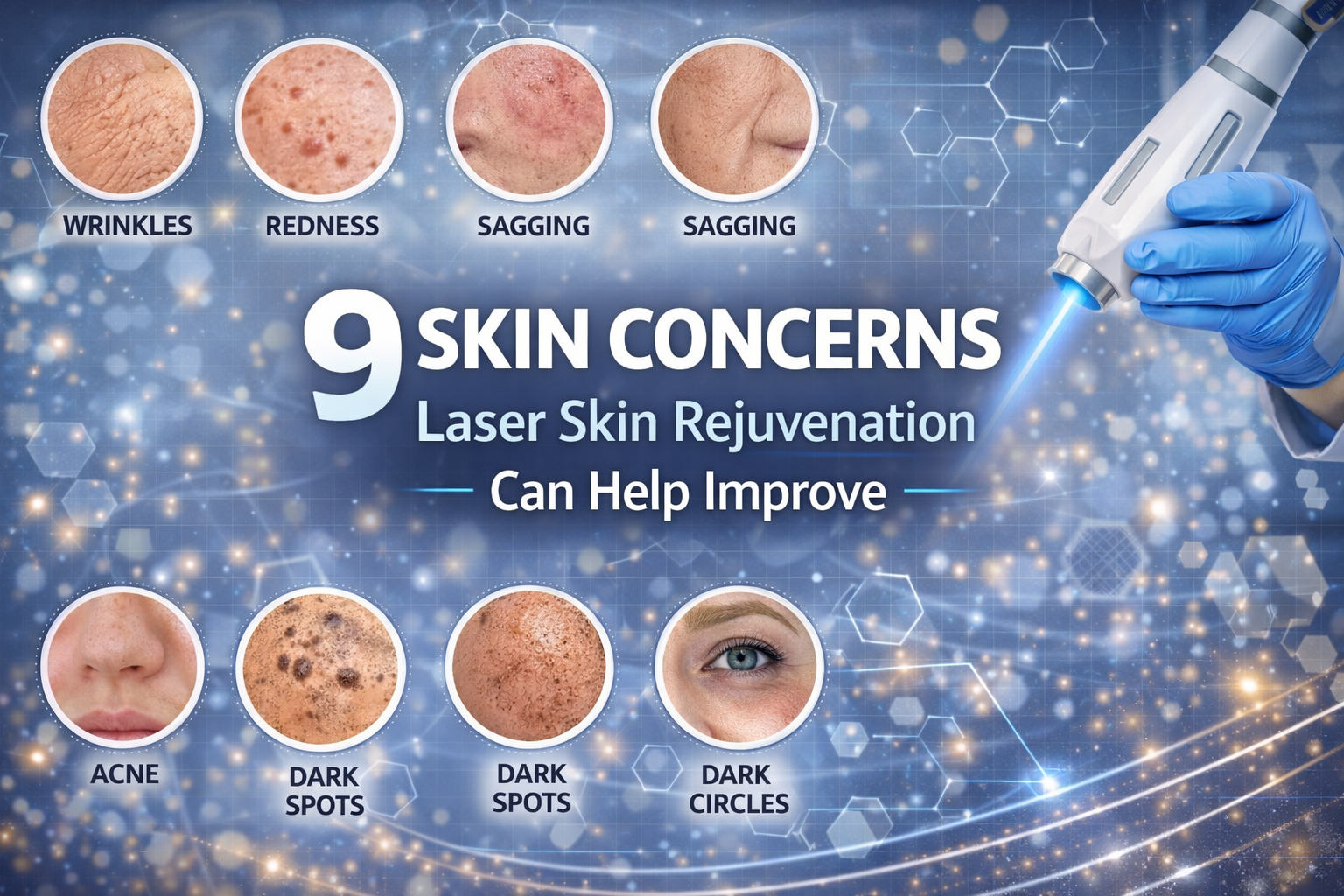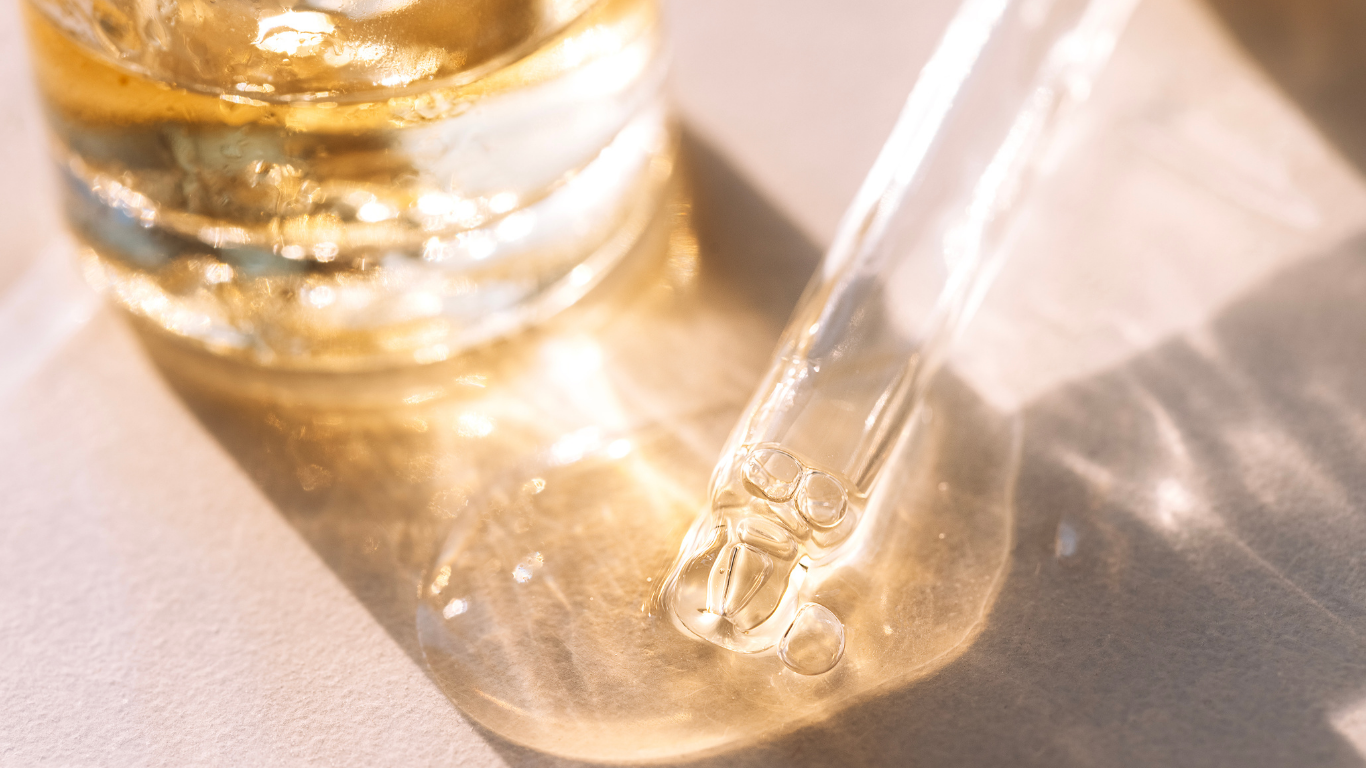Top Areas Treated With Botox and What Results to Expect
Botulinum toxin, also known as Botox, is a neurotoxin that temporarily freezes muscles. Commonly used in cosmetic treatments, its primary purpose is to reduce fine lines by relaxing the muscles that cause them.
Botox also has medical applications, including the treatment of excessive sweating, chronic migraines, and muscle spasms.
Common Cosmetic Areas Treated with Botox
The most popular areas for cosmetic Botox injections include the forehead, the area between the eyebrows, and the surrounding eye area. Additionally, aesthetic doctors use Botox to combat bunny lines, lip lines, chin dimples, and neck bands. Here’s a more detailed explanation:
· Forehead: the horizontal lines that appear when raising the eyebrows.
· Frown lines (glabellar lines): the vertical lines between the eyebrows that appear while frowning.
· Crow’s feet: lines at the outer corners of the eyes, caused by squinting and smiling.
· Bunny lines: lines that appear on your nose when you wrinkle it.
· Chin (mentalis): often treated to reduce dimpling and create a smooth appearance.
· Jawline and neck: used to soften fine lines on the neck and create a more defined jawline.
· Around the mouth: used to reduce ’smoker’s lines’ around the lips, or to create a ‘lip flip’.
The effects usually last between 3 and 6 months. We recommend regular follow-up treatments to maintain your results.
Common Areas Treated Medically with Botox
Medical practitioners use Botox for non-cosmetic medical procedures, too. Treatments include, among others, extreme sweating, muscle spasms, teeth grinding, and tension headaches.
· Hyperhidrosis: underarms, palms, and soles benefit from Botox injections to reduce excess perspiration.
· Dystonia: Botox injected into affected muscles can reduce stiffness and spasms in conditions like cervical dystonia and spasms relating to cerebral palsy.
· Chronic migraines: injections into specific parts of the head and neck can help reduce the frequency of migraines and even prevent future headaches.
· Temporomandibular Joint Disorder (TMJ syndrome): Botox injections into the jaw muscle can relieve pain and tension, as well as reduce teeth grinding.
What To Expect From Botox Injections
Botox injections are generally safe with minimal side effects, but it’s important to know what to expect. Potential after-effects include temporary discomfort, and redness or swelling at the injection site, usually subsiding within a day. Certain patients may experience bruising, although this is unlikely.
The timeline varies between people, but initial results are usually noticeable within a few days. The full effect of Botox takes between 1 and 2 weeks to become apparent.
Botox injections provide subtle and natural-looking results when administered by a qualified practitioner. Don’t expect an instant, intense change; instead, expect a smoother, more refreshed appearance.
The effects of Botox treatments are not permanent, which is why we recommend regular maintenance appointments to maintain your smooth-looking skin. Results last between 3 and 6 months, after which muscle movement gradually returns to normal. Factors like metabolism, lifestyle, and the area treated can affect the results timeline.
Botox FAQs
· How long is the recovery time post-cosmetic treatment?
There’s minimal downtime associated with Botox treatment. You can return to your daily routine immediately after your appointment.
· How many units do I need?
For moderate to deep forehead lines and frown lines, the FDA approves a maximum of 20 units of Botox. The FDA approves a maximum of 12 units on each side for crow’s feet.
· Is there sufficient research on Botox?
With over 20 years of research, Botox is the most studied treatment in its class. One hundred countries worldwide have approved the use of cosmetic Botox, with 574 peer-reviewed scientific articles available on its safety and efficacy.
· How do lines and wrinkles form?
Facial lines form due to a combination of factors, including UV exposure and collagen reduction. Repetitive muscle movement causes skin to fold and crease, resulting in facial lines. Botox injections work beneath the epidermis to temporarily reduce the muscle activity that causes these lines.
· How old do I have to be to start Botox treatments?
The minimum age to start cosmetic Botox treatments is 18, as it’s an age-restricted treatment. We generally recommend it to patients over 25, as this is when collagen production declines and lines become more noticeable.
· How can I make my Botox last longer?
To prolong the effects of Botox, focus on proper aftercare, a consistent skincare routine, and a healthy lifestyle. Avoid excess sun exposure, manage your stress levels, drink plenty of water, and consider a zinc supplement.
· Can I exercise after my treatment?
Although exercising won’t damage the effects of the injections, you could hamper the recovery process. The increase in blood pressure and heart rate could aggravate bruising at the injection site.
· What is the Botox four-hour rule?
The four-hour rule means that for four hours after your treatment, you should stay upright and avoid lying down. This time allows the Botox to settle into the targeted muscles.
What Are The Benefits of Botox?
Botox has become one of the most popular non-invasive procedures worldwide. Originally used to reduce the appearance of fine lines and wrinkles, its benefits now extend far beyond cosmetic augmentations. Whether you’re looking to refresh your appearance or need relief from medical conditions, Botox offers customizable, science-backed solutions.
By relaxing facial muscles, Botox can lead to smoother, even-looking skin, contributing to a more youthful look. It can also work as a preventative measure by reducing the muscle activity that leads to the formation of wrinkles. Migraines, hyperhidrosis, and muscle spasms may all benefit from tailored medical Botox treatments.
The Importance of Using Qualified Practitioners for Botox Treatments
Choosing a qualified and experienced practitioner is just as important as the treatment itself. At The Studio Med Spa, highly trained professionals administer all our injectables, prioritizing safety and precision. Trust our highly skilled team that’s committed to excellence and client well-being.




